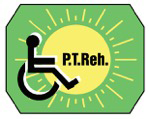


|
Current issue
Archive
Manuscripts accepted
About the journal
Editorial board
Reviewers
Abstracting and indexing
Contact
Instructions for authors
Publication charge
Ethical standards and procedures
Editorial System
Submit your Manuscript
|
1/2024
vol. 38 abstract:
Original article
Adults with acquired brain injury at inpatient rehabilitation: discharge comparison of patient-reported outcomes at follow-up with functional status
Pamela S Roberts
1
,
Debra Ouellette
2
,
Jeffrey Wertheimer
1
Advances in Rehabilitation, 2024, 38(1), 43–51
Online publish date: 2024/03/27
View
full text
Get citation
ENW EndNote
BIB JabRef, Mendeley
RIS Papers, Reference Manager, RefWorks, Zotero
AMA
APA
Chicago
Harvard
MLA
Vancouver
Introduction
This article was to determine the correlation between self-care and mobility status at time of discharge from an inpatient rehabilitation hospital and perception of patient reported physical and mental health outcomes for individuals with acquired brain injury (ABI). Material and methods Design: Retrospective electronic health data was collected as part of routine care from an inpatient rehabilitation hospital. The clinician-rated functional data for individuals with ABI at the time of discharge was linked to the telephonic follow-up data assessing health-related quality of life. Setting: Inpatient Rehabilitation Hospital. Participants: Data was obtained from patients discharged between the dates of January 1, 2020-December 31, 2021 with completion of the instrument via telephone at one point in time after discharge. Results The study included 143 individuals with ABI, with a mean age 70 years, over half being female (55.42%) and White (68.53). The model predicting patient’s perception of good physical health had 69.23% sensitivity and 62.5% specificity: C statistic 0.72. Sex and mobility scores at discharge were found to be significant predictors of good mental health. This model had a sensitivity of 63.55% and specificity of 63.89%: C statistic 0.68. Conclusions Despite the importance of understanding patient reported outcomes (PROs), there remains limited data to demonstrate the relationship between PROs and clinician-rated measures. Understanding the relationship between clinician-rated functional status, demographic variables, co-morbidities and patient-reported outcomes following inpatient rehabilitation status-post ABI can assist in proactively addressing expectations related to physical and mental health and guide rehabilitation and behavioral health intervention during home and community reintegration. keywords:
Patient Reported Outcomes, Functional Status, Stroke, TBI, Brain Injuries |
    |